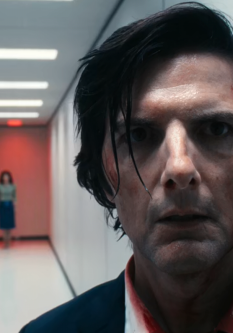The seventh episode of Severance Season 2 has aired, and it might just be the most content-rich installment of the season so far. An episode that not only answers some of the long-standing questions but also raises newer and more profound ones. If you found yourself confused after watching it, this article will explore the episode’s key moments, theories, and hidden clues to help make sense of what’s really going on.
The Best Episode of the Season So Far?
It’s no exaggeration to say that Episode 7 is arguably the strongest entry in Season 2. Several fan theories that have been circulating for a while are finally confirmed. Even the episode’s title, Chöyi Bardo, gives us a huge clue about its conceptual depth—a term deeply rooted in Buddhist philosophy.

In Tibetan Buddhism, Bardo refers to the six transitional states between death and rebirth. Chöyi Bardo is the fourth state, which begins immediately after death. It’s when the soul leaves the body and comes face to face with the light of ultimate truth. If the soul can understand and accept this light, it attains enlightenment and breaks free from the cycle of reincarnation.
But if it fails to do so, it enters Chönyi Bardo, where it must confront its karma, thoughts, and past actions. This leads to the next stage, Sidpa Bardo, and if the soul still can’t transcend its illusions, it is reborn and re-enters the cycle.
This episode draws on all of these stages—from the separation of consciousness from the body to encounters with illusions, fears, and mental trials, and the possibility of reincarnation. The show uses these spiritual ideas to deepen its philosophical narrative.
Is Lumon Trying to Control the Cycle of Life and Death?
One theory that now feels more compelling than ever is that Lumon is attempting to replicate and control the process of reincarnation. Through the chips implanted in employees’ brains, the company appears to be inserting new consciousness into existing bodies—the inverse of traditional reincarnation, where an old soul enters a new body.

With this technology, Lumon has managed to preserve physical bodies while altering the minds within them. Mark and Gemma are prime examples. These individuals seem to be part of a complex experiment involving mind control and perhaps even the pursuit of immortality.
In this episode, Gemma enters a high-security lab where she undergoes psychological, visual, and physical tests. It seems Lumon has promised her the possibility of having a child—an offer that would be incredibly tempting given her emotional vulnerabilities and past trauma. This manipulation showcases how the company exploits personal desires to further its experiments.
Visual Symbolism and Historical References
The episode opens with a warm, cinematic tone that starkly contrasts the series’ usual cold, industrial feel. This scene likely reflects the characters’ pasts. Entering the blood donation center—which is eerily similar to Lumon’s environment—suggests that Mark and Gemma have been under Lumon’s surveillance from the very beginning.
In Mark’s hands, we see a paper referencing a book called Western Front, a work banned and burned by the Nazis. Gemma, on the other hand, is holding The Death of Ivan Ilyich by Tolstoy—a book that deeply explores the human confrontation with mortality and meaning. These references make it clear that Severance is far more than a standard sci-fi narrative.

Another intriguing detail is the character of Dr. Mahari. His name has German roots and translates to “wall” or “barrier.” That’s exactly what he represents in the story: the force preventing Gemma from escaping the lab and re-entering the real world. Dr. Mahari might symbolize the type of scientist recruited by the U.S. after World War II—individuals who continued human experimentation, but under a new guise.
Frequent nods to the Nazi era, banned literature, and post-war scientists absorbed into American research projects all hint that Severance is reconstructing a chillingly real image of 20th-century mind control experiments. In the world of the show, Lumon plays that same disturbing role.
A Philosophical Turning Point
Episode 7 is one of Severance’s most intricate and philosophical episodes to date. Drawing on Buddhist concepts of death and rebirth, layered with historical references and literary symbolism, the show has taken a bold step beyond conventional storytelling.
While many questions remain unanswered, one thing is clear: Severance is not just interested in mystery for its own sake. It’s a series deeply invested in exploring themes of consciousness, identity, morality, and the human psyche.





Leave a Reply